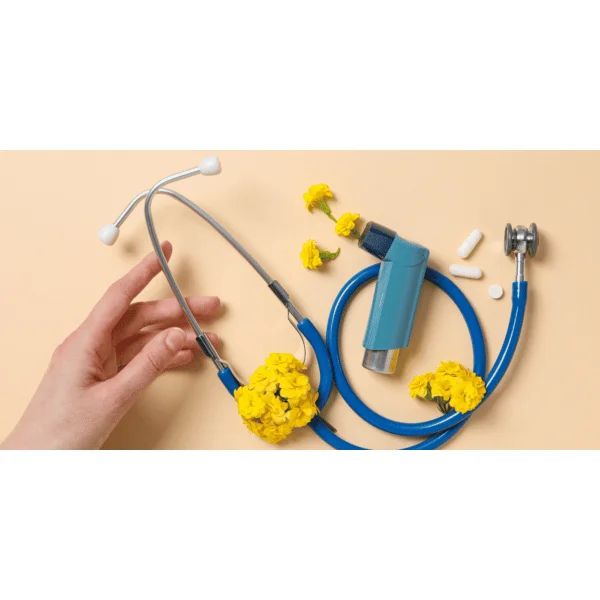Living with Asthma

Living with asthma doesn’t have to define you. With a proactive approach and some adjustments, you can navigate daily life with confidence and embrace all its possibilities. Read on for practical tips and insights to help you thrive, whether you’re facing workplace challenges, enjoying hobbies, or nurturing relationships.
Daily Management Tips
- Become a Weather Watcher: Track air quality and pollen levels and adjust your activities accordingly. Consider wearing a mask on high-pollution days.
- Befriend your Inhaler: Keep your inhalers readily available and understand their proper use. Don’t hesitate to use them as prescribed, even preventively before activities that might trigger symptoms.
- Declutter for Easy Breathing: Dust mites and mould can be asthma triggers. Regularly clean your home, especially bedding and upholstery, and consider using air purifiers.
- Embrace a Healthy Lifestyle: Maintain a balanced diet, prioritize sleep, and manage stress through relaxation techniques like yoga or meditation. Regular exercise, as you’ll see later, can also be a powerful tool.
- Track and Report: Monitor your symptoms and peak flow readings (if applicable) and share them with your doctor at regular check-ups. This helps optimize your treatment plan.
Managing Asthma at Work and School
- Open Communication: Inform your employer or school about your asthma and discuss any necessary accommodations. This could include access to a clean environment, flexible work arrangements, or adjusted physical activity requirements.
- Be Prepared: Keep an inhaler readily available at your desk or in your backpack. Inform a trusted colleague or teacher about your condition and how to assist you in case of an attack.
- Plan Ahead: If known triggers are involved in your work or studies, discuss alternative approaches with your superiors or educators. Proactive planning can reduce stress and maintain focus.
Exercise and Asthma
- Don’t Let Asthma Hold You Back: Exercise is beneficial for everyone, including those with asthma. Choose activities you enjoy, like swimming, walking, or yoga, and start slowly, gradually increasing intensity and duration.
- Warm Up and Cool Down: Prepare your airways for exercise with a gentle warm-up, and don’t forget to cool down afterward.
- Listen to Your Body: Pay attention to your breathing and pace yourself. If you experience wheezing or chest tightness, take a break or stop the activity.
- Talk to Your Doctor: Discuss your exercise plans with your doctor and develop a personalized exercise routine that aligns with your asthma control.
Mental Health and Asthma
- The Mind-Body Connection: Stress and anxiety can exacerbate asthma symptoms. Practice relaxation techniques and consider seeking professional support if needed.
- Positive Strategies: Focus on gratitude, mindfulness, and positive self-talk. Building resilience can significantly improve your overall well-being and asthma management.
Relationships and Asthma
- Honest Communication: Openly communicate your condition and needs to your loved ones. Understanding and support from family and friends can make a big difference.
- Plan Together: Discuss possible triggers in shared activities and find workarounds that everyone enjoys. Flexibility and understanding are key.
- Focus on Quality Time: Don’t let asthma define your relationships. Focus on shared activities and experiences that bring you joy and connection.